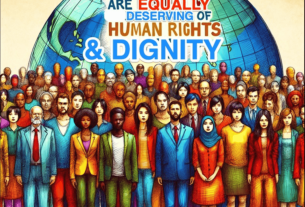This week, a Tanzanian court postponed the politically motivated treason trial of political opposition leader Tundu Lissu for the fifth time. Since treason is a capital offense, Lissu, who was arrested in April, cannot be released on bail and will remain in custody until the trial, now scheduled for August 13, is completed. This postponement comes amidst growing concerns about political repression in Tanzania and the integrity of the country’s general election in October.
The authorities accused Lissu of “publishing false information online” in connection with his nationwide “No Reforms, No Elections” campaign calling for electoral reforms. They claim he is attempting to incite the public to obstruct the elections. The court granted the postponement until the high court ruled on a prosecutorial request to allow prosecution witnesses to testify behind partitions, raising fair trial concerns. When Lissu was exiting the courtroom, he was pushed by the police officers escorting him.
Days after Lissu’s arrest, the governmental Independent National Electoral Commission barred his political party, Chama Cha Demokrasia na Maendeleo (Chadema), from contesting the October elections because it refused to sign, without meaningful electoral reform, the electoral code of conduct. In June, the High Court of Tanzania suspended Chadema from engaging in any political activities.
In May, when Kenyan activist Boniface Mwangi and Ugandan human rights lawyer Agather Atuhaire attempted to enter Tanzania and attend Lissu’s trial, the Tanzanian authorities detained them. Mwangi and Atuhaire told the media that the police beat and threatened them. After the incident, President Samia Suluhu Hassan issued a warning to foreign human rights activists, whom she described as “invading and interfering in our affairs.”
As Tanzania’s elections approach, there is growing international and regional concern about the country’s human rights situation. Human rights groups and the media have reported on the suppression of political opposition and religious leaders, restrictions on media and online freedoms, arbitrary arrests and detentions, police brutality and torture, and several instances of enforced disappearances.
Lissu’s prosecution and the numerous postponements of his trial fits a pattern of increasing oppression in Tanzania. The Tanzanian government should stop silencing political opponents and their supporters and refocus its energy and resources toward building a foundation on which its citizens and political actors can freely, fairly, and meaningfully participate in the political process.


